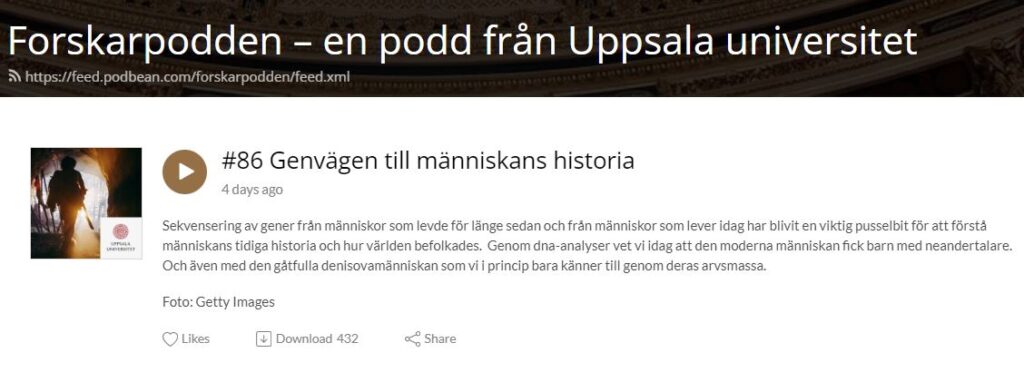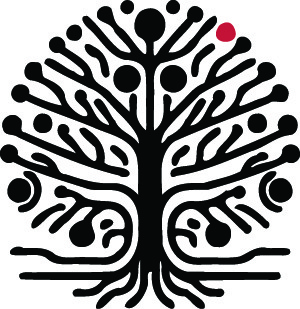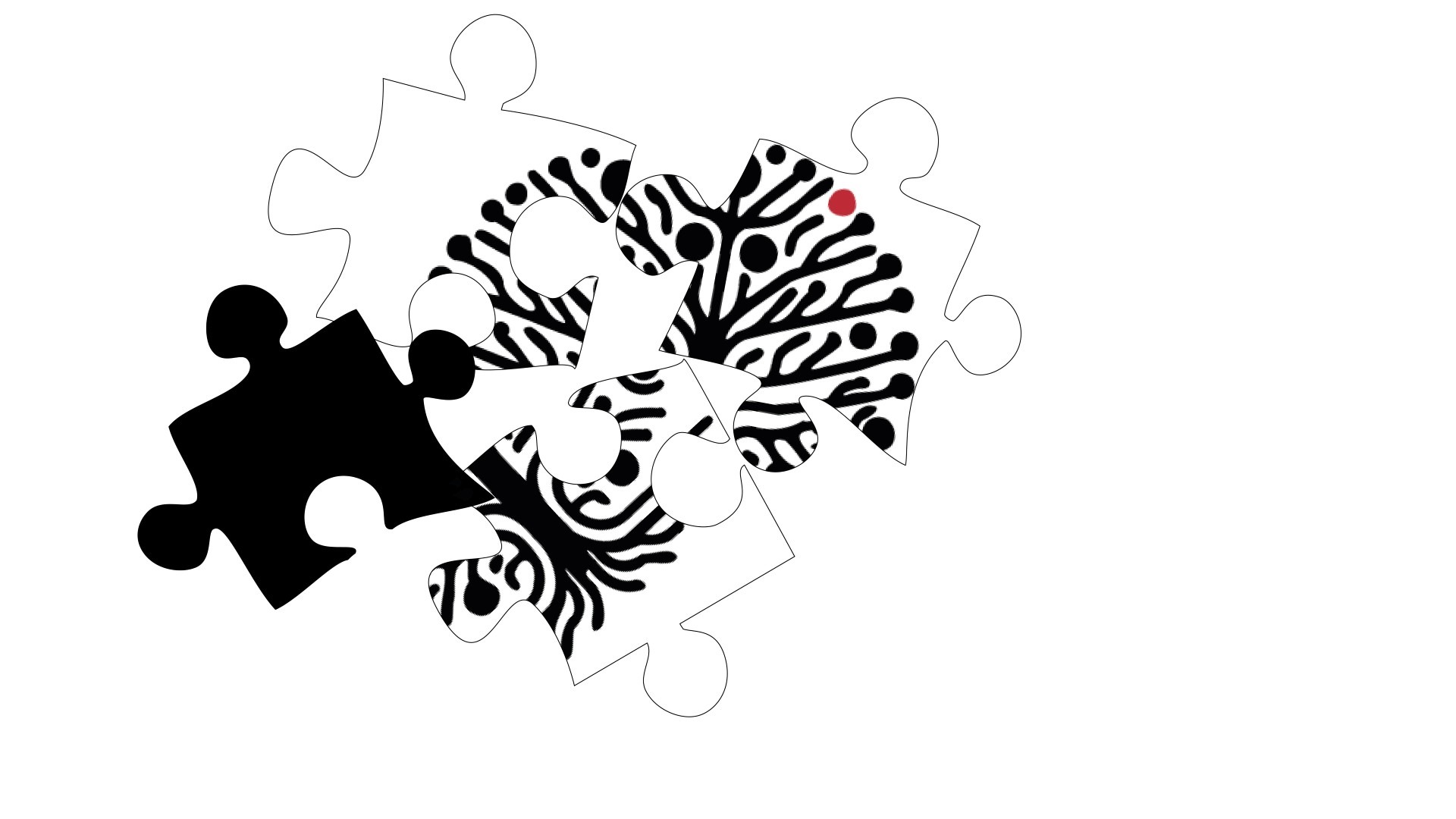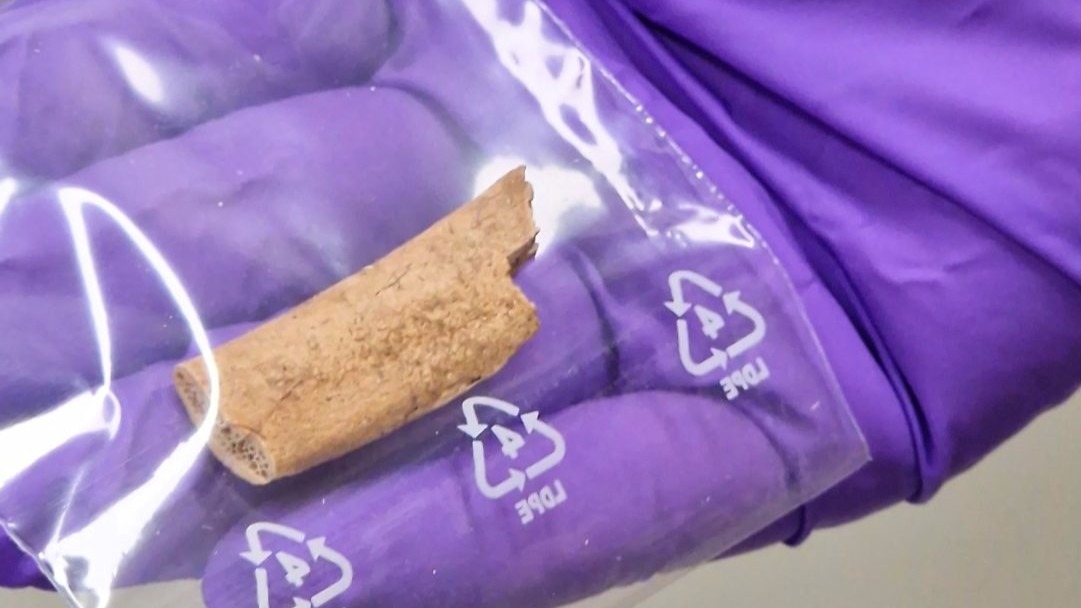Sequencing genes from people who lived long ago and those living today has become an important piece of the puzzle in understanding early human history and how the world was populated. Through DNA analyses, we know today that modern humans had children with Neanderthals. And also with the enigmatic Denisovans who we basically only know about through their genetic makeup. Mattias Jakobsson talks with Åsa Malmberg about prehistoric humans, Denisovans, how it happened that we carry a fragment of Neanderthals in our genes today, and how we know so much about it.

Listen to the Episode #86 in the Research podcasts series from Uppsala University (in Swedish): #86 Genvägen till människans historia
Read more (in Swedish)
Interested in more on the subject? The Philippine ethnic group Ayta Magbukon has the highest proportion of genes from our extinct relatives, the Denisovans. Their Denisovan share far exceeds that of ethnic groups in Papua New Guinea, who previously held the record. The study also provides another clue to the mystery of the Denisovans, how they interacted with the modern humans and what happened to them subsequently. In the scientists’ view, the combined findings reveal a complex, intertwined history of present-day and archaic hominins in Oceania, where distinct island populations of Denisovans interbred with modern humans in several different places and at various times.
Read the whole news article.
The study is published in the scientific journal Current Biology (Larena et al. (2021), Philippine Ayta possess the highest level of Denisovan ancestry in the world, Current Biology. DOI: 10.1016/j.cub.2021.07.022).



